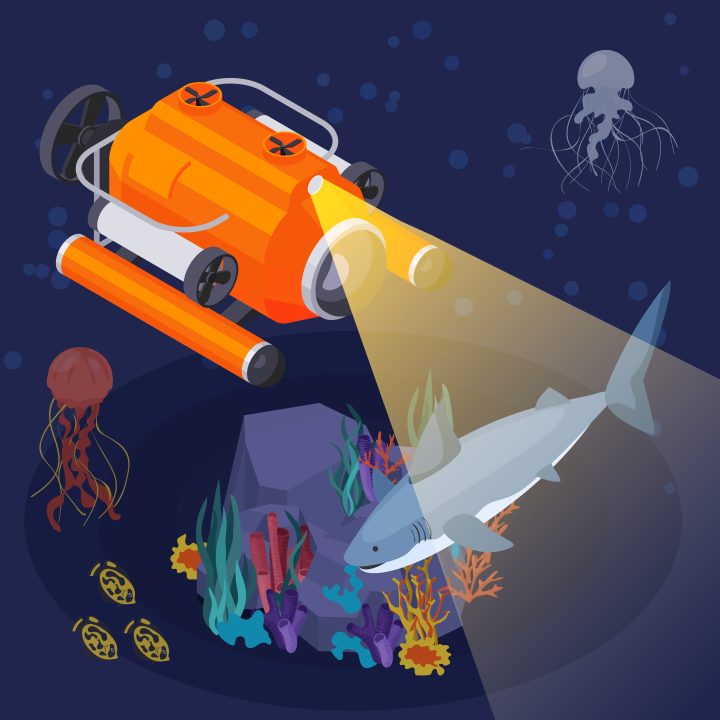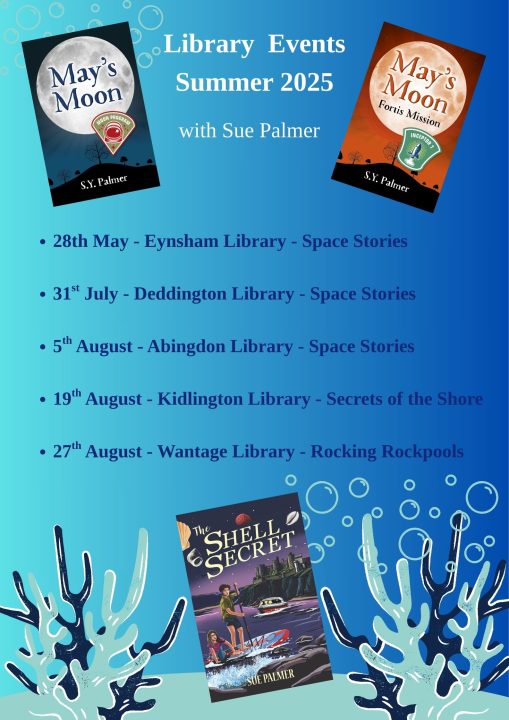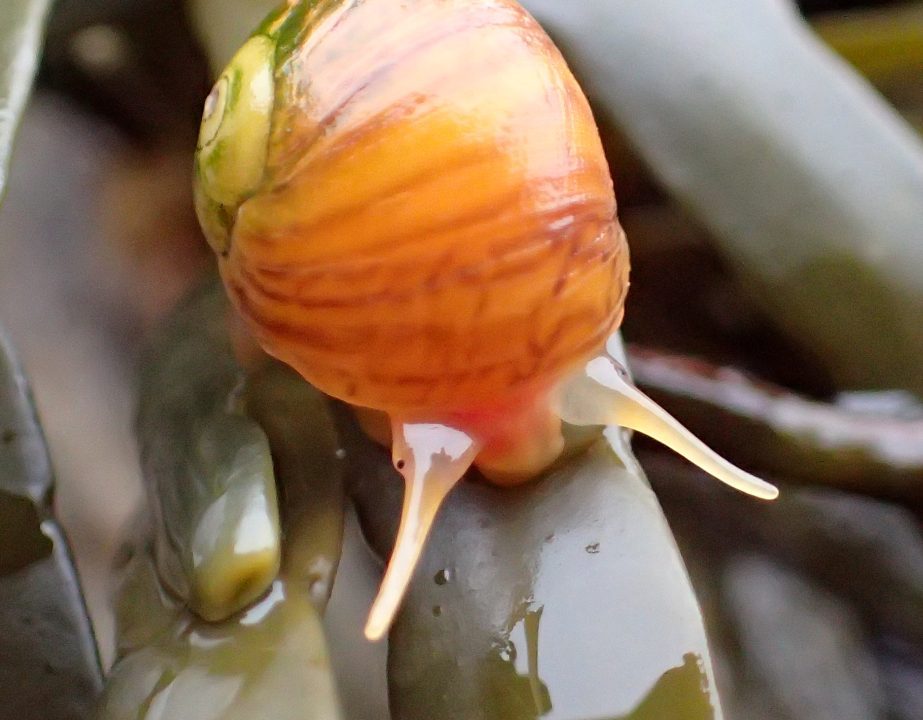Living in a rock pool is a tough job, particularly for creatures with soft bodies.
There are many dangers, including varying temperatures, levels of oxygen, food and predators.
Also, how far up the beach a species lives (which intertidal zone it inhabits), determines the strategies it has developed for surviving in an environment that is very different to the nearby sea.
Let’s look at how species with soft bodies, and those with shells, survive the dangers of life on the shore.
Rock Pool creatures with soft bodies include:
- Anemones (see the Beadlet anemone and Snakelocks anemone appear in The Shell Secret)
- Sea Urchins
- Starfish
- Sea Slugs
- Intertidal Fish (like Gobies or Blennies)
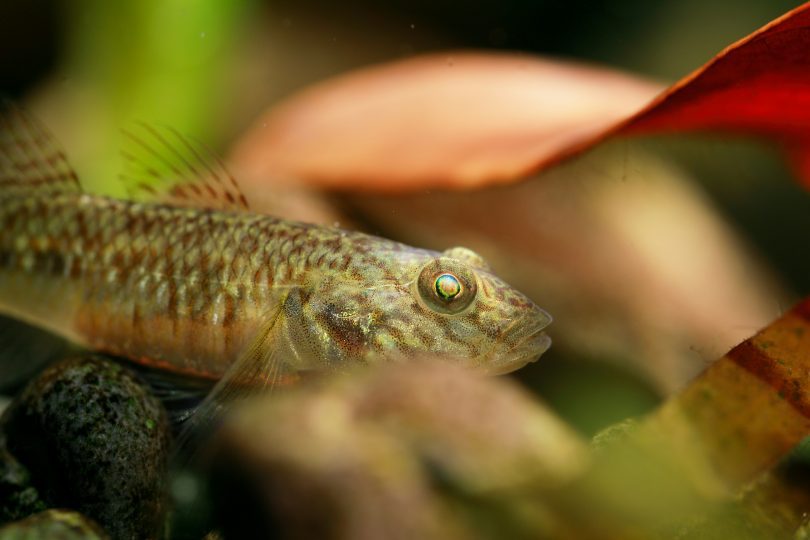
Goby Fish
These creatures all have some real challenges to overcome in order to survive and reproduce.
- Temperature
If you’ve ever swum in the Atlantic Ocean off the UK, you’ll have experienced temperatures of around 16°C in the summer and 10°C in the winter. It’s enough to notice the difference but not enough for sea creatures to struggle with the fluctuation.
Now imagine life in a rock pool that is flooded with water each time the tide comes in and is then left for around 12 hours until the next high tide. The sea water coming in might start off at 16°C but, in the heat of the summer, the water in shallow rock pools could rise to as high as 27°C. This causes soft-bodied creatures stress and creates a really difficult environment for them. They run the risk of drying out and, if that’s not bad enough, as the water evaporates, the pools also become saltier for them.
Anemones cope with this by retracting their tentacles and curling into a blob shape. This way, they conserve their energy and reduce the chance of drying out. Remember, these animals cannot sweat or cool off by evaporation like some of their shell-protected neighbours.
- Oxygen
Unlike in the sea, oxygen levels in rock pool water fluctuate immensely and this can be deadly for its inhabitants. During the day, algae take carbon dioxide from the water and use sunlight energy to create food for themselves, whilst releasing valuable oxygen as a by-product. This is called photosynthesis. However, at night time, algae and other creatures in the pools use this oxygen and it can fall to dangerously low levels. Carbon dioxide levels also keep changing, making the water alkaline during the day but more acidic during the night. And then the sea comes flooding in again with the tide and fills the pool once more. What a life!
- Food
Many creatures in rock pools are filter feeders. This means they pump water through their bodies to filter it for food. Imagine that the sun has evaporated some of the water in the pool and then, at night time, the oxygen levels fall and acidity levels rise. They still filter the water, exhaust the food supplies quickly and become weakened.
Rock Pool creatures with shells include:
- Barnacles
- Limpets
- Mussels
- Periwinkles (see the flat periwinkles in my blog, Rock Pool Secrets 2 – Wonders of the Flat Periwinkle and in The Shell Secret – Alice’s favourite shells)
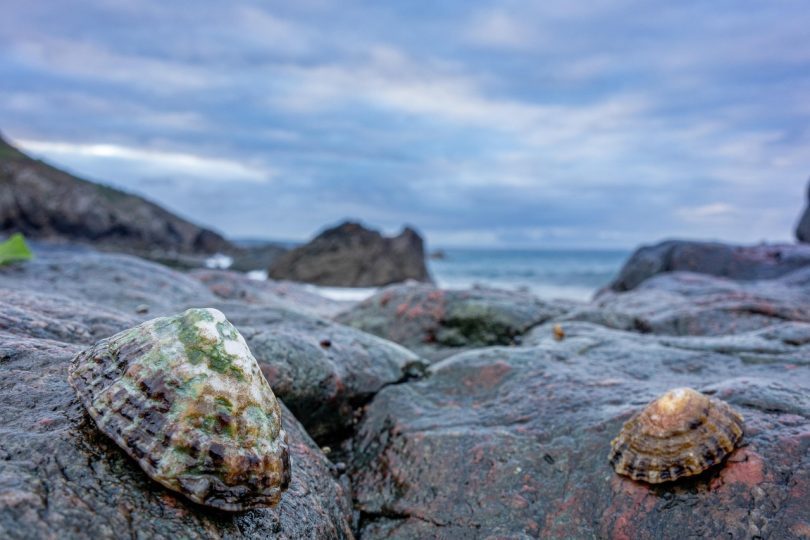
Limpets
These creatures have several advantages over their soft-shelled pool mates.
- Temperature Control
Firstly, they are able to sweat, releasing water to cool themselves down. They are also able to store water under their shells so they can breathe out of the rock pool. Barnacles have special air channels in their shells that provide insulation and keep it cool and wet.
- Energy
Secondly, they are able to shut themselves down (with a type of trap door) and sleep whilst they wait for the tide. This means they aren’t using any energy and can rest until it’s time to feed again.
- Location
A shell creature, such as the limpet, attaches itself to rocks with a kind of muscular foot that keeps it in the same place, despite the crashing of waves and strong winds. It also uses a homemade mucus as glue to keep it in place. When the tide comes in, it changes the composition of the glue from very sticky to not so sticky, enabling it to move and feed.
But limpets are very homely creatures. As soon as the tide goes out, they follow their mucus trail back to exactly the same spot and produce sticky glue to attach themselves once more. As shell creatures are exposed when the tide is out, several species live further away from the shoreline to protect themselves from predators.
- Protection
It’s no surprise that a hard shell is great protection against predators. Crabs are able to move quickly and have a layer of amour on them. But a shell is no guarantee of safety. Birds, starfish and crabs, all have their own techniques for wrestling, picking and infiltrating a shell and its inhabitant. Dog Whelks are particularly talented at boring through shells. They inject an enzyme to digest their prey within its shell, eventually sucking out the creature in liquid form.
But a shell is made of calcium carbonate and needs alkaline conditions to calcify and grow. If rock pools continue to become more acidic, these shells will weaken and the creatures within will become more vulnerable to the environment and their predators.
Survival of Rock Pools
If just one creature in our UK rock pools dies out, the whole ecosystem could collapse. Temperature, acidity levels, human littering, pollution and extreme weather are all threats to this delicately balanced habitat.
So if you are on holiday and want to search for a shrimp, shore crab or anemone, give a thought to what these creatures have to endure every day and, whilst you admire their colours, shapes and behaviours, do your best to respect their home and environment.
There are some fantastic images and information about rock pools at Cornish Rock Pools


